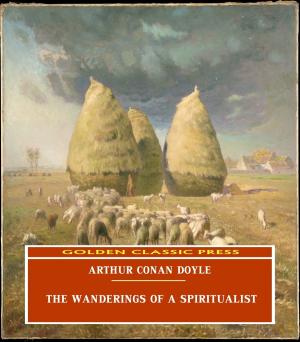| Author: | Charles Dickens | ISBN: | 1230002906959 |
| Publisher: | GOLDEN CLASSIC PRESS | Publication: | November 23, 2018 |
| Imprint: | Language: | English |
| Author: | Charles Dickens |
| ISBN: | 1230002906959 |
| Publisher: | GOLDEN CLASSIC PRESS |
| Publication: | November 23, 2018 |
| Imprint: | |
| Language: | English |
*** Original and Unabridged Content. Made available by GOLDEN CLASSIC PRESS***
Synopsis:
Charles Dickens is considered one of the greatest English authors of all time. Dickens often used the pen name Boz. Much of his work first appeared in periodicals and magazines in serialized form. Unlike many writers of his time Dickens wrote the entire novel before serializing it. He made frequent use of the cliffhanger to keep the public interested. Dickens talks of the joys of a quiet a Sunday afternoon and the pleasure derived from a day off for the working classes. The pampered aristocrat, whose life is one continued round of licentious pleasures and sensual gratifications; or the gloomy enthusiast, who detests the cheerful amusements he can never enjoy, and envies the healthy feelings he can never know, and who would put down the one and suppress the other, until he made the minds of his fellow-beings as besotted and distorted as his own; --neither of these men can by possibility form an adequate notion of what Sunday really is to those whose lives are spent in sedentary or laborious occupations, and who are accustomed to look forward to it through their whole existence, as their only day of rest from toil, and innocent enjoyment.
*** Original and Unabridged Content. Made available by GOLDEN CLASSIC PRESS***
Synopsis:
Charles Dickens is considered one of the greatest English authors of all time. Dickens often used the pen name Boz. Much of his work first appeared in periodicals and magazines in serialized form. Unlike many writers of his time Dickens wrote the entire novel before serializing it. He made frequent use of the cliffhanger to keep the public interested. Dickens talks of the joys of a quiet a Sunday afternoon and the pleasure derived from a day off for the working classes. The pampered aristocrat, whose life is one continued round of licentious pleasures and sensual gratifications; or the gloomy enthusiast, who detests the cheerful amusements he can never enjoy, and envies the healthy feelings he can never know, and who would put down the one and suppress the other, until he made the minds of his fellow-beings as besotted and distorted as his own; --neither of these men can by possibility form an adequate notion of what Sunday really is to those whose lives are spent in sedentary or laborious occupations, and who are accustomed to look forward to it through their whole existence, as their only day of rest from toil, and innocent enjoyment.















